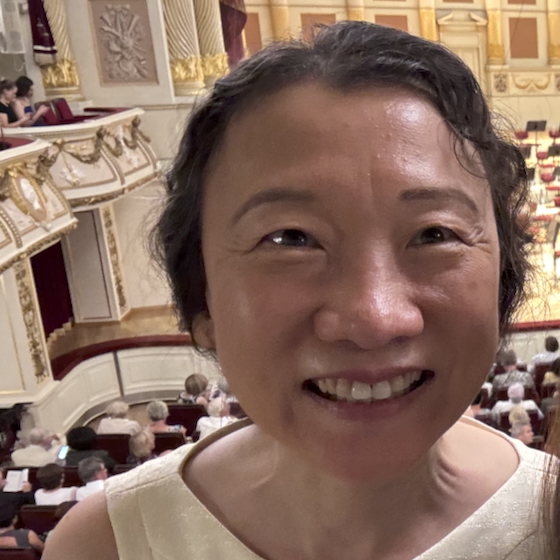


Vallee Visiting Professor Explores Phase Separation at Max Planck Institute in Dresden
This summer, Dr Hao Wu -- Asa and Patricia Springer Professor of Chemistry and Molecular Pharmacology at Harvard Medical School and Boston Children’s Hospital -- spent a vibrant and intellectually rich sabbatical at the Max Planck Institute of Molecular Cell Biology and Genetics (MPI-CBG) in Dresden, where she was hosted by Dr Anthony Hyman. Her visit focused on exploring the relationship between phase separation and ordered functional assemblies — an area of growing importance in cell biology. Dr Wu actively engaged with the Hyman lab, participating in lab retreat and weekly journal clubs, and enjoyed frequent discussions with researchers, students, postdocs, and technicians. Indeed, the sabbatical provided many opportunities for in-depth discussions within the community including Tony Hyman and Kai Simons, both VVPs themselves, as well as other faculty members on topics ranging from pancreatic stem cells and regenerative limits to cytoskeletal self-organization, innate immune complexes, and lipid biology. Discussions on modeling, condensate characterization, and amyloid formation, among many others, provided much food for thought, and the opportunity to return to these conversations again and again over the month sparked a number of possible collaborations.
Dresden is home to three major institutes where biologists, chemists, and physicists study condensates and phase separation. Hao Wu gave public Vallee Lectures at all three: MPI-CBG (June 23), the Leibniz Institute of Polymer Research (June 26), and the Max Planck Institute for the Physics of Complex Systems (July 1). Each talk sparked engaging exchanges that continue to shape her thinking on underlying mechanisms.
Hao’s sabbatical also included a warm reception at Tony Hyman’s home, which echoed the camaraderie of past Vallee retreats, visits to Leipzig for Bach’s organ music and a weekend in Prague exploring art and architecture.
“This sabbatical will have a lasting impact on my science,” said Dr Wu. “I’m deeply grateful to the Vallee Foundation and will proudly acknowledge its support in future publications.”
